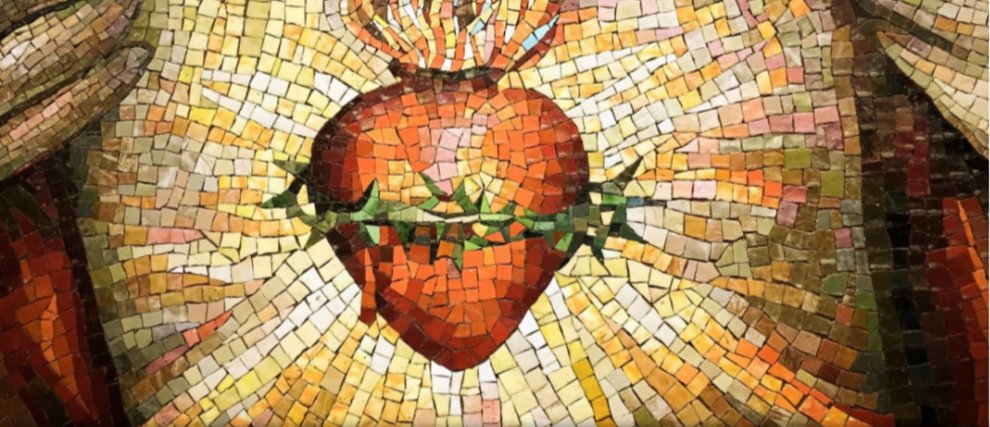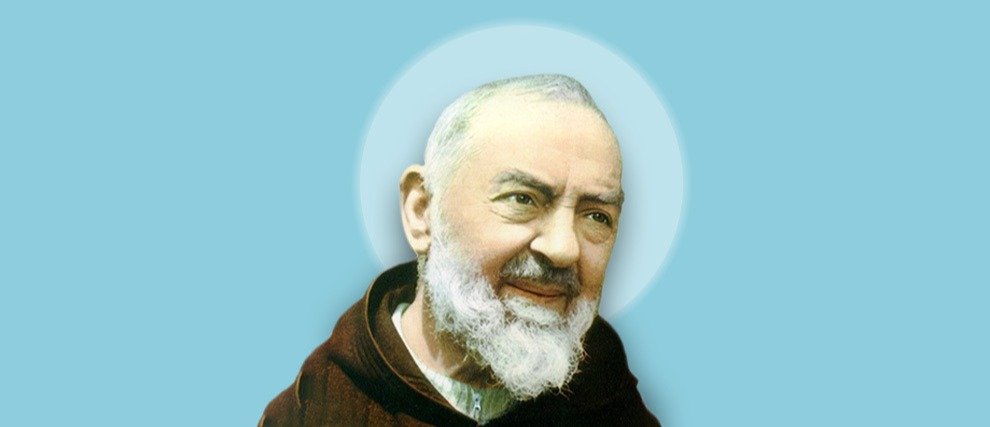The Eucharist in the Catechism of the Catholic Church
The sacrament of the Eucharist, administered by a validly ordained priest, bishop or deacon, is part of the sacraments of Christian initiation, along with confirmation.
Instituted on Holy Thursday, while Jesus was celebrating the Last Supper with his Apostles, the Eucharist, which “completes Christian initiation” (No. 1322), is addressed in Article 3 of the second section of the catechism on the seven sacraments of the Church, numbers 1322 to 1419. Discover the main questions and answers around this sacrament from the Catechism of the Catholic Church.
What is this sacrament called?
The Sacrament of the Eucharist has several names, which we will discover:
- Eucharist, for it is thanksgiving to God (no. 1328).
- Meal of the Lord, with reference to the Last Supper taken by the Lord with his disciples on the eve of his Passion (No. 1329).
- Fraction of bread
- Eucharistic Assembly (No. 1329).
- Memorial of the Passion and Resurrection of the Lord (No. 1330).
- Holy Sacrifice, because it actualizes the only sacrifice of Christ the Savior (No. 1330).
- Holy and Divine Liturgy, or Celebration of the Holy Mysteries, or Most Blessed Sacrament (No. 1330).
- Communion, because we unite with Christ to form one body (No. 1331).
- Holy Mass (No. 1332).
What does the Eucharist represent in the life of the Church?
Numbers 1324 to 1327 show that the Eucharist is the source and summit of Christian life. Number 1324 gives an element of explanation of the fact that “the other sacraments, and indeed all ecclesiastical ministries and works of the apostolate, are bound up with the Eucharist and are oriented toward it. For in the blessed Eucharist is contained the whole spiritual good of the Church, namely Christ himself, our Pasch. Number 1407 completes by saying “The Eucharist is the heart and the summit of the Church's life, for in it Christ associates his Church and all her members with his sacrifice of praise and thanksgiving offered once for all on the cross to his Father; by this sacrifice he pours out the graces of salvation on his Body which is the Church. ”
What are the fruits of communion?
Addressed in particular in numbers 1391 to 1396, the fruits of communion are union with Christ (Nos. 1391 and 1396), the increase and renewal of the life of grace received at baptism (No. 1392), vivified charity (No. 1394), the erasure of venial sins (No. 1394) and the preservation of future mortal sins (No. 1395)
Number 1416 summarizes the fruits of communion: “Communion with the Body and Blood of Christ increases the communicant's union with the Lord, forgives his venial sins, and preserves him from grave sins. Since receiving this sacrament strengthens the bonds of charity between the communicant and Christ, it also reinforces the unity of the Church as the Mystical Body of Christ. ”
How to consider the Eucharist?
Number 1358 of the Catechism shows that the Eucharist must be considered as thanksgiving and praise to the Father, as the sacrificial memorial of Christ and his Body, as the presence of Christ by the power of his Word and his Spirit.
As thanksgiving and praise to the father
It is particularly numbers 1360 to 1361 that show that the Eucharist is a sacrifice of thanksgiving and praise.
Number 1360 shows that “The Eucharist is a sacrifice of thanksgiving to the Father, a blessing by which the Church expresses her gratitude to God for all his benefits, for all that he has accomplished through creation, redemption, and sanctification. Eucharist means first of all “thanksgiving.” Number 1361 shows that “The Eucharist is also the sacrifice of praise by which the Church sings the glory of God in the name of all creation. This sacrifice of praise is possible only through Christ: he unites the faithful to his person, to his praise, and to his intercession, so that the sacrifice of praise to the Father is offered through Christ and with him, to be accepted in him.”
As the sacrificial memorial of Christ and his body
Number 1409 shows that “The Eucharist is the memorial of Christ's Passover, that is, of the work of salvation accomplished by the life, death, and resurrection of Christ, a work made present by the liturgical action.”
Numbers 1362 to 1372 also address the sacrificial memorial of Christ and his Body, the Church.
As the presence of Christ
Numbers 1373 to 1381 show how Christ is present. Number 1373 provides a good summary: “Christ Jesus, who died, yes, who was raised from the dead, who is at the right hand of God, who indeed intercedes for us,” is present in many ways to his Church: in his word, in his Church's prayer, “where two or three are gathered in my name,” in the poor, the sick, and the imprisoned, in the sacraments of which he is the author, in the sacrifice of the Mass, and in the person of the minister. But “he is present . . . most especially in the Eucharistic species.”
Is Jesus Christ really present in the Eucharist?
The numbers 1373 to 1381 and 1281 to 1413 answer this question. For example, number 1375 tells us, “It is by the conversion of the bread and wine into Christ's body and blood that Christ becomes present in this sacrament.”
Number 1377 states that “The Eucharistic presence of Christ begins at the moment of the consecration and endures as long as the Eucharistic species subsist. Christ is present whole and entire in each of the species and whole and entire in each of their parts, in such a way that the breaking of the bread does not divide Christ.”
Finally, we can also mention number 1413: “By the consecration the transubstantiation of the bread and wine into the Body and Blood of Christ is brought about. Under the consecrated species of bread and wine Christ himself, living and glorious, is present in a true, real, and substantial manner: his Body and his Blood, with his soul and his divinity.”
How is the Eucharist celebrated?
The liturgy of the Eucharist unfolds in two great moments: the liturgy of the Word (the readings, the homily, and the universal prayer) and the Eucharistic liturgy (the presentation of the bread and wine, the consecration, and communion).
Number 1408 summarizes: “The Eucharistic celebration always includes: the proclamation of the Word of God; thanksgiving to God the Father for all his benefits, above all the gift of his Son; the consecration of bread and wine; and participation in the liturgical banquet by receiving the Lord's body and blood. These elements constitute one single act of worship.”
What is required to receive communion?
In order to receive communion, one must be baptized and be in the state of grace. Number 1385 says that “he who is aware of a serious sin must receive the sacrament of reconciliation before entering communion.” Number 1415 goes in the same direction: “Anyone who desires to receive Christ in Eucharistic communion must be in the state of grace. Anyone aware of having sinned mortally must not receive communion without having received absolution in the sacrament of penance. Finally, number 1387 indicates that bodily attitudes (gestures, clothes) must reflect respect by the one who will receive communion.
Apart from the Catechism of the Church, we can find other elements of response in the Code of Canon Law:
“Any baptized person who is not prevented by law can and must be admitted to Holy Communion” (Canon No. 912)
“The excommunicated and the forbidden, after the infliction or the declaration of the penalty and those who persist obstinately in a grave and manifest sin, will not be admitted to Holy Communion. (Canon No. 915)
Canon No. 919 recommends abstaining “at least one hour before Holy Communion, from taking any food and drink, except only water and medicines” except for “the elderly and the sick”
At what age can we receive Communion?
There is no age to receive communion for the first time, but there is an “age of reason.” In fact, we can say that it is rather rare for children to receive communion before 8 years old. For an adult who wants to receive Communion, but who is not baptized, it will take a preparation time (the catechumenate), which lasts at least 1 year, before being baptized and finally being able to receive Communion.
If we talk a lot about the living for whom the Eucharist is offered, the catechism also reminds us that “the Eucharistic sacrifice is also offered for the dead faithful” (No. 1371).
How often do you participate in the Sacrament of the Eucharist?
Number 1389 of the Catechism answers this question by recommending Sunday participation in this sacrament, as well as feast days, and even more often.
Here is the full number:
“The Church obliges the faithful to take part in the Divine Liturgy on Sundays and feast days and, prepared by the sacrament of Reconciliation, to receive the Eucharist at least once a year, if possible during the Easter season. But the Church strongly encourages the faithful to receive the holy Eucharist on Sundays and feast days, or more often still, even daily.”
We can also add that people who are sick or who cannot move, can ask someone from their parish to carry them the Eucharist.
With Hozana, rediscover the Eucharist!
With Hozana, rediscover the Eucharist, with different proposals, such as , or You can also find .
Finally, discover various saints, like blessed Carlo Acutis, who communed every day.

